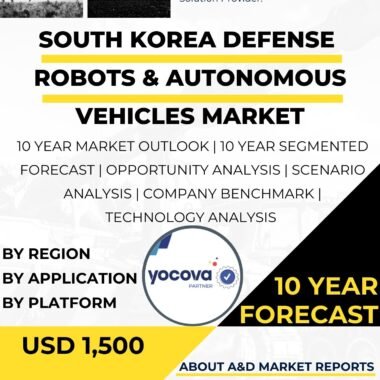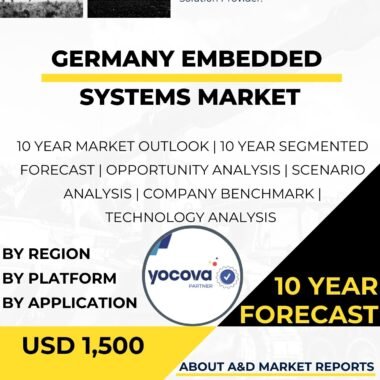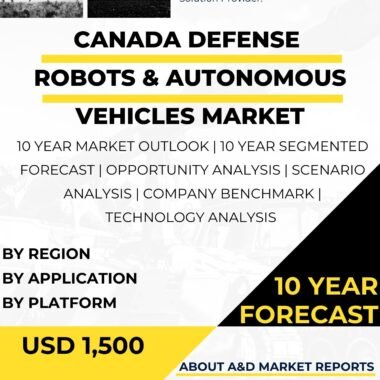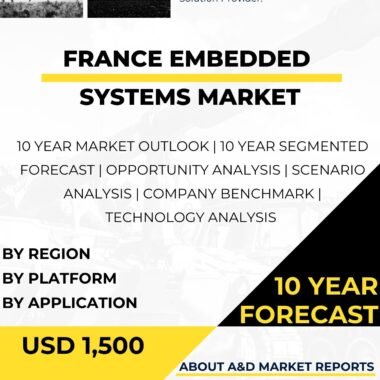Description
The Belgium defense robots and autonomous vehicles market is a significant segment within the country’s defense industry. Robots and autonomous vehicles play a crucial role in enhancing defense capabilities, improving situational awareness, and conducting various military operations. Belgium recognizes the importance of advanced robotics and autonomous technologies in its defense sector to ensure operational effectiveness and support the modernization of its armed forces.
The primary driver for the Belgium defense robots and autonomous vehicles market is the need for unmanned systems that can perform tasks autonomously or remotely in challenging and dangerous environments. Robots and autonomous vehicles offer unique advantages, such as reducing the risk to human life, providing continuous operation, and enhancing operational efficiency. These systems are utilized in a wide range of defense applications, including reconnaissance, surveillance, logistics support, explosive ordnance disposal, and search and rescue operations.
Belgium’s domestic defense industry plays a crucial role in the development, production, and integration of defense robots and autonomous vehicles. Belgian companies, such as FN Herstal and OIP Sensor Systems, have expertise in robotics and autonomous technologies and contribute to the country’s defense capabilities. These domestic capabilities foster innovation, create job opportunities, and contribute to the economic growth of the Belgium defense robots and autonomous vehicles market.
Collaborations with international partners and suppliers are also significant for the Belgium defense robots and autonomous vehicles market. Belgium often engages in partnerships with defense companies from NATO member states and other allied nations to access advanced technologies, benefit from joint development programs, and ensure interoperability with allied forces. These collaborations enable Belgium to leverage global advancements in defense robotics and autonomous systems and enhance its military capabilities.
Furthermore, Belgium’s participation in multinational defense initiatives influences the defense robots and autonomous vehicles market. Collaboration within NATO and other international defense cooperation programs fosters interoperability, joint training exercises, and the exchange of best practices. This cooperation ensures compatibility and enhances operational effectiveness when conducting joint military operations with allied forces.
The Belgium defense robots and autonomous vehicles market face challenges such as technological advancements, ethical considerations, and regulatory compliance. Technological advancements in robotics and autonomous systems, including improvements in perception, decision-making algorithms, and mobility, require continuous research and development efforts. The Belgium market needs to stay at the forefront of innovation to provide state-of-the-art robots and autonomous vehicles that meet evolving defense requirements.
Ethical considerations are essential in the use of defense robots and autonomous vehicles. Belgium’s defense industry must address the ethical implications associated with autonomous systems, including accountability, human control, and the potential for misuse. Ensuring responsible development and use of these systems is crucial to maintaining public trust and upholding legal and ethical standards.
Regulatory compliance is an important consideration in the deployment of defense robots and autonomous vehicles. Belgium’s defense industry must adhere to strict regulations and guidelines concerning the use of unmanned systems, including airspace regulations, data protection, privacy concerns, and compliance with international humanitarian law. Compliance with these regulations is crucial to ensure the safe and lawful use of robots and autonomous vehicles in defense operations.
In conclusion, the Belgium defense robots and autonomous vehicles market is a significant segment within the country’s defense industry. Robots and autonomous vehicles play a crucial role in enhancing defense capabilities, improving situational awareness, and conducting various military operations. Domestic capabilities, collaborations with international partners, and Belgium’s participation in international defense initiatives drive the growth and development of the defense robots and autonomous vehicles market. As defense requirements evolve and technological advancements continue, the demand for advanced and versatile robotic systems and autonomous vehicles is expected to increase, fostering innovation, collaboration, and economic growth within the sector.




